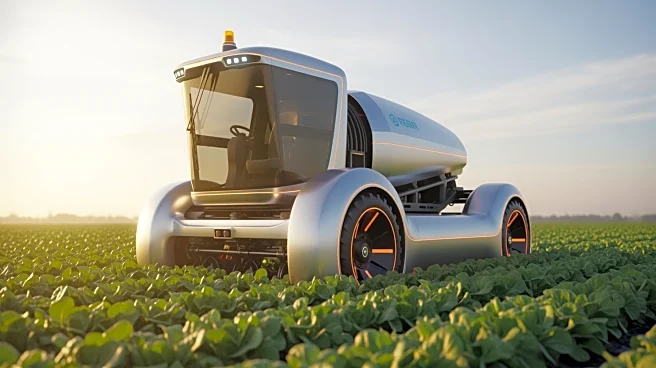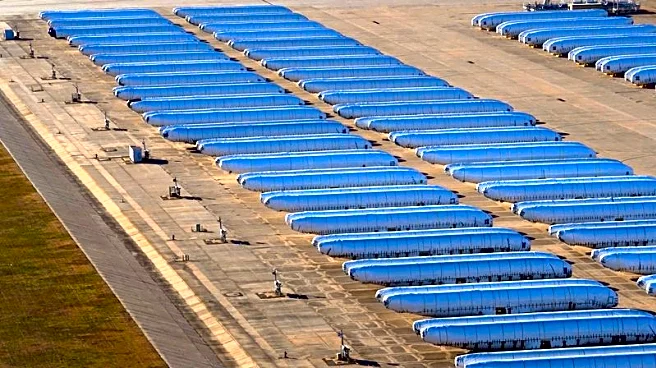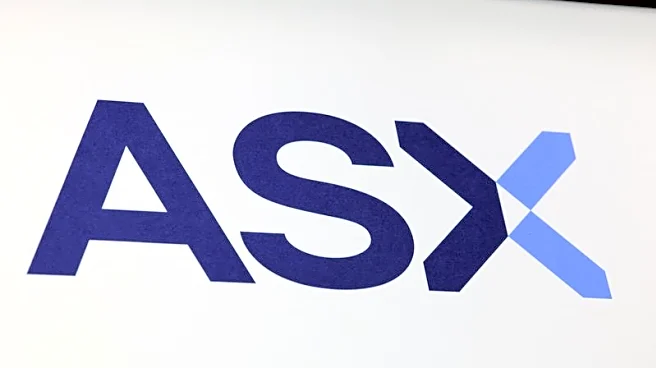What's Happening?
Innotrac has introduced the Caesar, an autonomous implement carrier designed for vegetable and fruit cultivation. The vehicle is equipped with a diesel engine and hydrostatic drive, offering a maximum speed of 10 km/h. It features a three-point hitch
for mounting existing implements and machines, making it versatile for various agricultural tasks. The Caesar navigates using LiDAR and RTK GPS and is equipped with a Starlink antenna for mobile internet connectivity. Innotrac plans to test a pilot series of five units next year, with a starting price of €150,000. The company aims to provide an affordable solution for farms with at least 35 hectares.
Why It's Important?
The introduction of the Caesar represents a significant advancement in agricultural technology, particularly for vegetable and fruit growers. By automating essential farming tasks, the Caesar can help these farms increase productivity while reducing reliance on human labor. This could lead to more sustainable farming practices and potentially lower operational costs. The vehicle's ability to operate autonomously with advanced navigation technology demonstrates its efficiency, making it a valuable asset for farms looking to optimize their operations. Additionally, the deployment of such technology could level the playing field between smaller farms and larger agricultural enterprises.
What's Next?
Innotrac plans to test a pilot series of five units next year, with the potential for further expansion based on market demand. As the technology becomes more widespread, it is likely to attract interest from other regions and potentially lead to further innovations in autonomous farming equipment. Stakeholders in the agricultural sector may need to consider the implications of increased automation on labor markets and farm management practices.
Beyond the Headlines
The adoption of autonomous farming technology like the Caesar could have broader implications for the agricultural industry, including ethical considerations regarding labor displacement and the environmental impact of increased mechanization. As farms transition to more automated systems, there may be a need for new regulations and standards to ensure safe and sustainable practices. Additionally, the integration of AI and advanced sensors in farming equipment raises questions about data privacy and security.


















